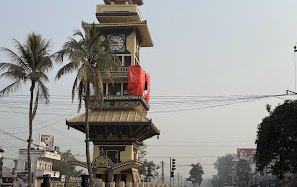This article gives a glimpse of inheritable proprietary rights of women, one of the most controversial legal issues that Nepali society is facing at present. As a lawyer anyone would love to voice their opinion in the subject. I am no exception. I have been paying attention to this legal issue for quite a while now. The question why my sister has not been given the same share in the ancestral property as I has been at the back of my mind, too.
The Constitution of Nepal, in Chapter 3, under Fundamental Rights and Duties, has provisions for the right to equality. Under the Right to Equality, Article 18(5) reads, "All offspring shall have the equal right to the ancestral property without discrimination on the ground of gender." From the existing constitutional provisions, it is certain that the daughters would be entitled to ancestral property henceforth. It is yet to be seen and challenged in the courts if daughters can claim their share in the property retrospectively.
Another relevant Article 38(1) under Rights of Women states, "Every woman shall have equal lineage right without gender based discrimination." Under the same heading, Rights of Women, Article 38(6) guarantees equal share of property between spouses. Article 38(6), under Part 3, Fundamental Rights and Duties of the Constitution of Nepal, reads, "The spouse shall have equal right to property and family affairs."
The Constitution of Nepal clearly states that the spouse is entitled to the share in the property and have his/her say in the family affairs. Generally the word spouse is used for both husband and wife. But it also depends on how the word spouse is interpreted by the courts of Nepal given the fact that the word has been used under the topic rights of women under the chapter of Fundamental Rights and Duties.
Analyzing these constitutional provisions on the surface show that women are doubly benefitted. But digging into the meaning of 'spouse' and contemplating Article 38(6) one might also come to the conclusion that husband(s) is also entitled to property of his wife and it has been guaranteed by the Constitution.
It is also interesting to scrutinize the provision of Interim Constitution of Nepal 2063 and some sensitive and relevant legal provisions of Muluki Ain. Through these constitutional and legal provisions the present constitutional provisions have evolved and taken a shape. They have made an effort to shed the discriminating laws on the basis of gender.
Under Article 20(4) of Chapter 3, Fundamental Rights of the Interim Constitution of Nepal, it was mentioned that 'Son(s) and daughter(s) shall have equal rights to ancestral property'. The Interim Constitution of Nepal 2063 made an attempt to override discriminating laws that existed before. Muluki Ain before the Eleventh Amendment deprived the daughters of the entitlement of ancestral property. After the Eleventh Amendment they had qualified rights. Number 1 of the Chapter 13 On Partition now states, "While partitioning a property it shall be partitioned between the father, mother, wife, son and daughter individually, subject to the provisions of this Chapter." But a qualifying Number 1A was inserted in the Eleventh Amendment. Number 1A read, "Notwithstanding anything contained in Number 1, it shall not be necessary to provide a share in property to the married daughter." They could get property from their parents only if they remained unmarried. With further amendment in 2072 B.S Number 1A was repealed. This was an effort to maintain equality and eliminate gender violence. Needless to say a property thus partitioned pursuant to Number 1 of Chapter 13 On Partition was to be equally received by coparceners.
It hasn't been easy for older generations to accept these provisions. However, I can clearly see that my sister has been deprived of the right to entitlement of property which stands as a foundation of my economic and other activities.
My grandmother, 96 years, still wishes to voice her opinion and disapproves that daughters should get a share of ancestral property. She reasons that it will destroy the harmony in the family. It was she who started the debate during one of our regular gatherings that prompted me to write on this sensitive issue. Her opinion is that the scarcer the property, the more disputes there will be in the family.
It might also be of interest to cursorily observe what the Civil Code Bill has provisioned with respect to relevant women's inheritable rights. Section 210 of the Chapter 10 Provisions Regarding Partition states that for the purpose of partitioning joint family property husband, wife, father, mother, son and daughter are coparceners. The partition is to be executed between these persons subject to the other sections of Chapter 10.
To conclude legal provisions with respect to property in Nepal are gradually evolving and mitigating discrimination. However, there is still enough room for play. People affected by the ambiguity of the laws will be at the mercy of the court's interpretation. On holding conversations with a few intellectuals upon these legal provisions, I have felt that everyone seems skeptical and no one is pleased. This is quite natural for the society whose roots are always threatened and aren't intact and the structure is fluid. To an evolving society the effects of these legal provisions have been very debatable and seem controversial. The resistance is immense.
These laws still cannot answer the problems of society, especially that of the poor. The poor daughter is still seen as a liability to the have-nots family and so is a daughter-in-law. A poor woman is bound to suffer at both relations. The poor will still be the hardest hit. The laws are still vague as to be justifiable and command uniform authority. Nonetheless they do appear progressive in a society where gender discrimination has been a major concern. The big question before us is 'will these laws harmonize the society or divide it?'
Adhikari is an advocate

Abhishekh Adhikari
Adhikari is an advocate
- Glorious Eastern Nepal
- Sep 10, 2024
- Vipassana: An Inward Journey
- Jul 29, 2024
- Once Again A Trip To Poonhill
- Mar 18, 2024
- A Trek To The Lesser Trodden Ruby Valley
- Mar 28, 2022
- A Complete Trip, Personally
- Jan 26, 2020















